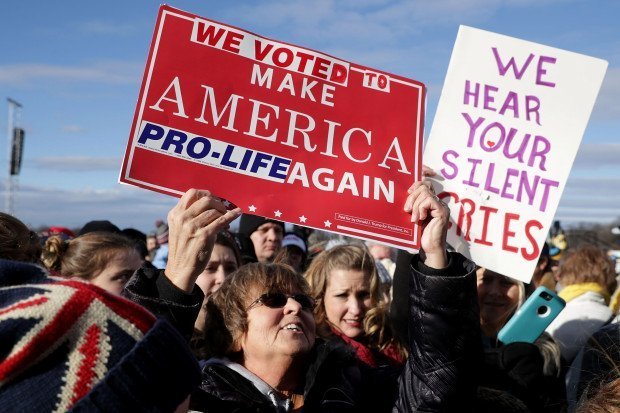The White House is rushing to appoint as many judges as possible before 2020 to give President Trump yet another talking point he can rally on as he stumps for re-election.
Trump’s team believes that stacking the judicial system with conservative judges galvanizes the base, demonstrates his ability to follow through on a 2016 campaign promise and will help win over crucial 2020 states like Colorado, Florida and North Carolina.
And Trump himself is convinced that judicial appointments are central to both his legacy and policy agenda, as he has pushed for young judges who can serve for decades, according to former administration aides, close White House advisers and those familiar with the administration’s judicial plans.
Trump on Saturday night indirectly addressed the nation’s recent spate of new abortion legislation, saying he was “strongly pro-life.”
As most people know, and for those who would like to know, I am strongly Pro-Life, with the three exceptions – Rape, Incest and protecting the Life of the mother – the same position taken by Ronald Reagan. We have come very far in the last two years with 105 wonderful new…..
— Donald J. Trump (@realDonaldTrump) May 19, 2019
….Federal Judges (many more to come), two great new Supreme Court Justices, the Mexico City Policy, and a whole new & positive attitude about the Right to Life. The Radical Left, with late term abortion (and worse), is imploding on this issue. We must stick together and Win….
— Donald J. Trump (@realDonaldTrump) May 19, 2019
….for Life in 2020. If we are foolish and do not stay UNITED as one, all of our hard fought gains for Life can, and will, rapidly disappear!
— Donald J. Trump (@realDonaldTrump) May 19, 2019
Trump was in favor of a woman’s right to choose an abortion for decades before entering the GOP presidential primaries in 2015.
New restrictions on abortion in Alabama and Georgia, among other places, have upped the nation’s ongoing battle over abortion rights by putting strict restrictions on the procedure and creating new legal penalties.
Some of the recently enacted laws or pending pieces of legislation go beyond Trump’s formula; Alabama‘s new law, for instance, only allows exceptions when the mother’s life is in danger.
Those pieces of legislation have likely set up legal battles that are expected to head to the U.S. Supreme Court and possibly lead to a direct challenge to Roe v. Wade, the law of the land since 1973.
Abortion foes are hoping the additions of Neil Gorsuch and Brett Kavanaugh to the Supreme Court will lead to abortion being heavily restricted or eliminated.
Senate Majority Leader Mitch McConnell (R-Ky.) has done everything he can to help quicken the pace, changing procedural rules to limit debate time and lower the voting threshold Supreme Court justices must clear to get approved.
In just the last six weeks, the Senate will have confirmed 15 judges, aided by a recent debate-limiting tweak.
“Obviously that’s going to be one of the most lasting legacies of the Trump administration and the next 25 to 30 years,” said Republican Sen. John Cornyn, a member of the Senate Judiciary Committee. “I think it’ll remain a priority especially when our Democratic colleagues don’t seem too interested in legislating, particularly in the House.”
Already the Senate has confirmed more than 100 of the president’s nominees to the federal bench, including two Supreme Court Justices and 40 circuit court judges.
Outside conservative groups and donors want the pace to move as quickly as possible.
It’s a troubling situation to left-leaning strategists who say the Trump administration and Senate leadership has broken tradition with both their selection of judges and the process of confirming them.
“I am not sure how they can speed it up anymore,” said Daniel Goldberg, legal director at the left-leaning Alliance for Justice. “Mitch McConnell has already eroded almost every rule and norm to expedite Trump’s far-right judges with as little transparency and vetting as possible.”
In addition to youth, Trump and his team look for potential judges who have Ivy League credentials or clerkships with high-profile judges or justices, according to a former administration official. The president also often talks about the importance of judges “not being weak,” said one individual familiar with the White House’s judicial selection process.
While Trump himself is not personally involved in the selection of judges for the lower courts, he was heavily invested in the administration’s Supreme Court picks, according to former administration officials and individuals familiar with the White House process.
Trump personally interviewed and chose both Justices Neil Gorsuch and Brett Kavanaugh.
